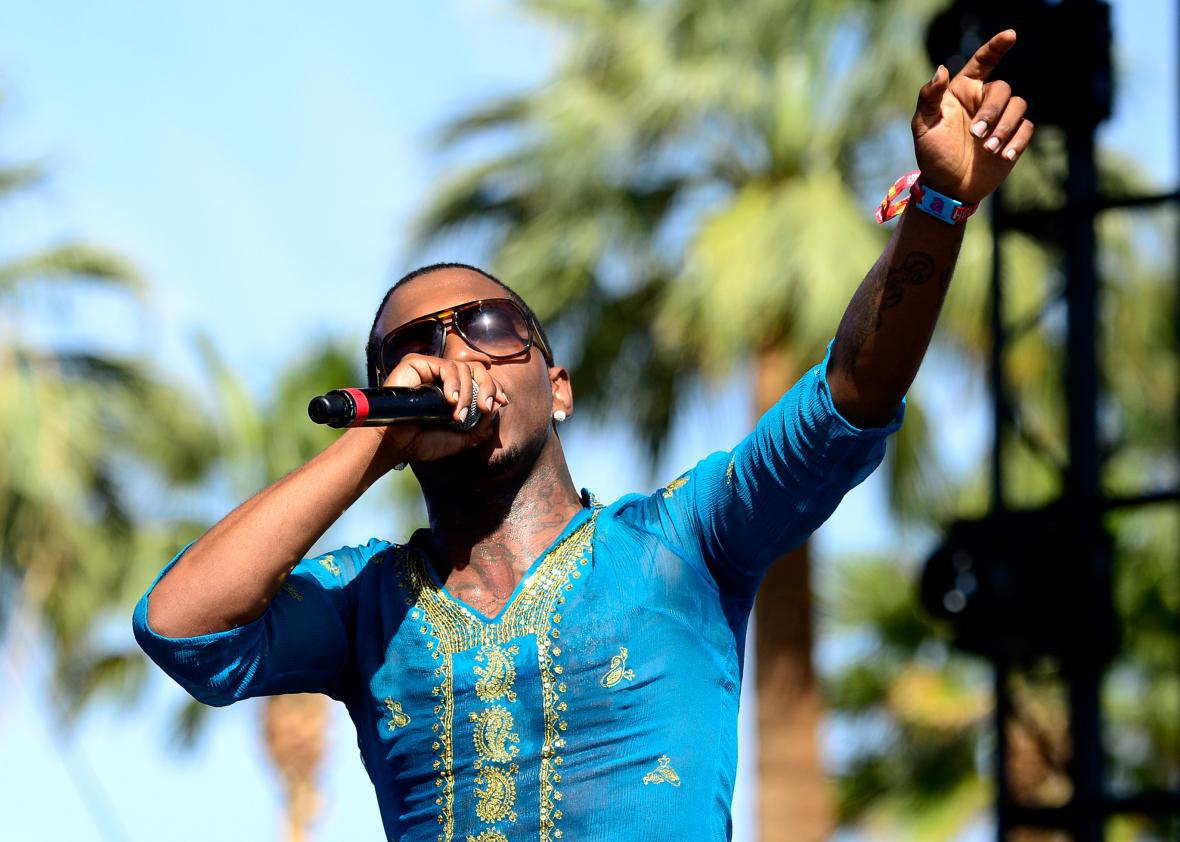Lil B, a rapper best known for his Dadaist albums like Black Ken and Rain in England, received a 30-day suspension on Facebook for violating the site’s “hate speech” policies, which the social media site confirmed to Motherboard on Tuesday.
I texted Lil B on Tuesday night about the incident, and he sent me a screen shot of the posts that Facebook deemed offensive. (We blurred out his actual name at his request.)
He said he wrote the posts in response to the shooting in Las Vegas. He also provided this comment by text: “Really i just want my facebook page back because i really respect the platform nothing i say over facebook is with a malicious intent.. i pride myself on being positive and brining people together no matter how i come off my end message is to bring people closer in a authentic and honest way- lil b.”
In a similar incident in August, Facebook took down a post advertising a Portland rally against “white nationalism.” As Slate technology reporter April Glaser points out, this is likely because “Facebook counted a rally against white nationalism to be racist against white people, and therefore banned the ad as a violation of its hate speech policies.”
We know this because in June, ProPublica reported that, according to internal documents:
Facebook deletes curses, slurs, calls for violence and several other types of attacks only when they are directed at “protected categories”—based on race, sex, gender identity, religious affiliation, national origin, ethnicity, sexual orientation and serious disability/disease. It gives users broader latitude when they write about “subsets” of protected categories. White men are considered a group because both traits are protected, while female drivers and black children, like radicalized Muslims, are subsets, because one of their characteristics is not protected.
Facebook has also faced controversy suspending black activists like Ijeoma Oluo and Shaun King.
Update, Oct. 12, 2017: Facebook says that these were not the only posts considered in the suspension of Lil B. It also shared a statement with us:
People can and do use Facebook to challenge ideas, institutions, and practices. Such discussion can promote a diversity of perspectives and greater understanding. However, we’re opposed to hate speech in all its forms, and don’t allow it on our platform. We want Facebook to be a space where both expression and personal safety are protected and respected. That’s why we developed our Community Standards, which you can read on our site.
